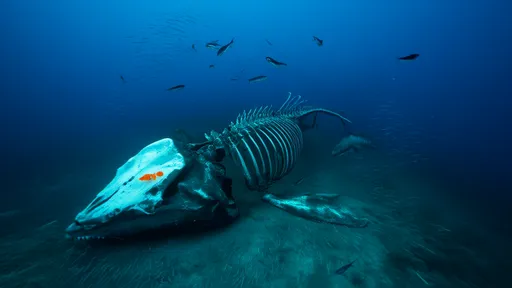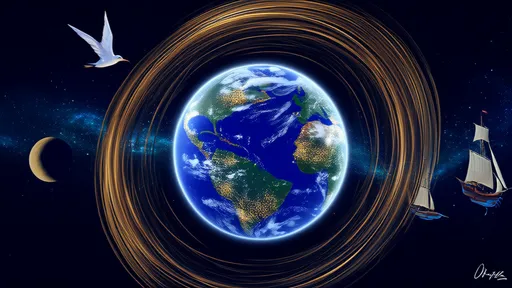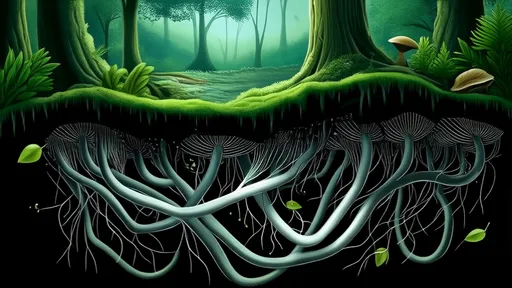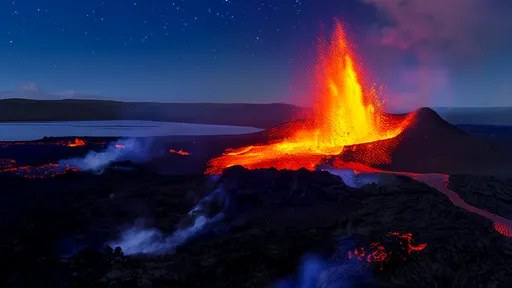The Earth’s magnetic field has always been humanity’s silent guide, a steadfast force that has directed explorers, sailors, and even migratory birds for millennia. But what happens when this invisible shield begins to waver—or worse, flip entirely? Geomagnetic reversals, though rare, are a natural phenomenon where the planet’s magnetic poles switch places. If such an event were to occur in our lifetime, the immediate consequence would be the disruption of compasses, those trusty tools we’ve relied on for navigation. The question then arises: in a world where magnetic north is no longer north, how do we find our way?
For centuries, the compass has been the backbone of navigation, its needle faithfully pointing toward magnetic north. But during a geomagnetic reversal, that needle could spin erratically or settle in a direction that no longer corresponds to true north. The transition period between reversals, which can last hundreds or even thousands of years, would be marked by a weakened and chaotic magnetic field. Compasses might become unreliable, leaving pilots, sailors, and hikers without their primary directional tool. The implications for transportation, logistics, and even everyday life would be profound.
In such a scenario, humanity would need to fall back on older, non-magnetic methods of navigation. Celestial navigation, once the domain of ancient mariners and explorers, would regain its importance. By observing the sun, moon, and stars, travelers could determine their position and direction without relying on a compass. The North Star, or Polaris, would remain a fixed point in the sky, at least until the Earth’s axial precession shifts it over millennia. Solar navigation, using the sun’s position at noon to find true south (or true north, depending on the hemisphere), could also become a critical skill.
Technology, of course, would not remain idle in the face of such a challenge. Global Positioning System (GPS) satellites, which rely on precise timing and radio signals rather than magnetism, would continue to function unimpaired. However, GPS is not infallible—signal disruptions, solar flares, or cyberattacks could render it temporarily useless. In a geomagnetic reversal scenario, redundancy would be key. Inertial navigation systems, which track movement via accelerometers and gyroscopes, could serve as a backup, though their accuracy diminishes over time without external corrections.
The natural world, too, offers clues for those attuned to its rhythms. Many animals possess an innate sense of direction that doesn’t rely solely on magnetism. Birds, for instance, use a combination of celestial cues, landmarks, and even olfactory signals to navigate. Observing animal behavior might provide rudimentary guidance in the absence of reliable compasses. Similarly, certain plants exhibit growth patterns influenced by geomagnetism; while not precise enough for navigation, they could serve as indicators of shifting magnetic fields.
Beyond navigation, a geomagnetic reversal would pose broader challenges. The Earth’s magnetic field acts as a shield against solar radiation and cosmic rays. During a reversal, this shield weakens, potentially increasing exposure to harmful radiation at the surface. While this wouldn’t directly affect navigation, it underscores the need for alternative solutions in a world where the magnetic field is in flux. Societies would need to adapt not just how they navigate, but how they protect infrastructure, health, and technology from increased radiation.
History offers glimpses of how civilizations might cope. Before the widespread use of compasses, cultures like the Polynesians traversed vast oceans using wave patterns, wind directions, and star paths. Their wayfinding techniques, honed over generations, demonstrate that human ingenuity can thrive even without magnetic guidance. In a post-compass world, such knowledge might experience a revival, blending ancient wisdom with modern technology to create resilient navigation systems.
Ultimately, a geomagnetic reversal would be less about chaos and more about adaptation. Humanity has faced and overcome countless environmental challenges, and this would be no different. Whether through rediscovering old methods, developing new technologies, or learning from the natural world, we would find ways to navigate—even when the compass no longer points the way.

By /Jun 7, 2025

By /Jun 7, 2025

By /Jun 7, 2025

By /Jun 7, 2025

By /Jun 7, 2025

By /Jun 7, 2025

By /Jun 7, 2025

By /Jun 7, 2025

By /Jun 7, 2025

By /Jun 7, 2025

By /Jun 7, 2025

By /Jun 7, 2025

By /Jun 7, 2025

By /Jun 7, 2025

By /Jun 7, 2025

By /Jun 7, 2025

By /Jun 7, 2025

By /Jun 7, 2025

By /Jun 7, 2025

By /Jun 7, 2025